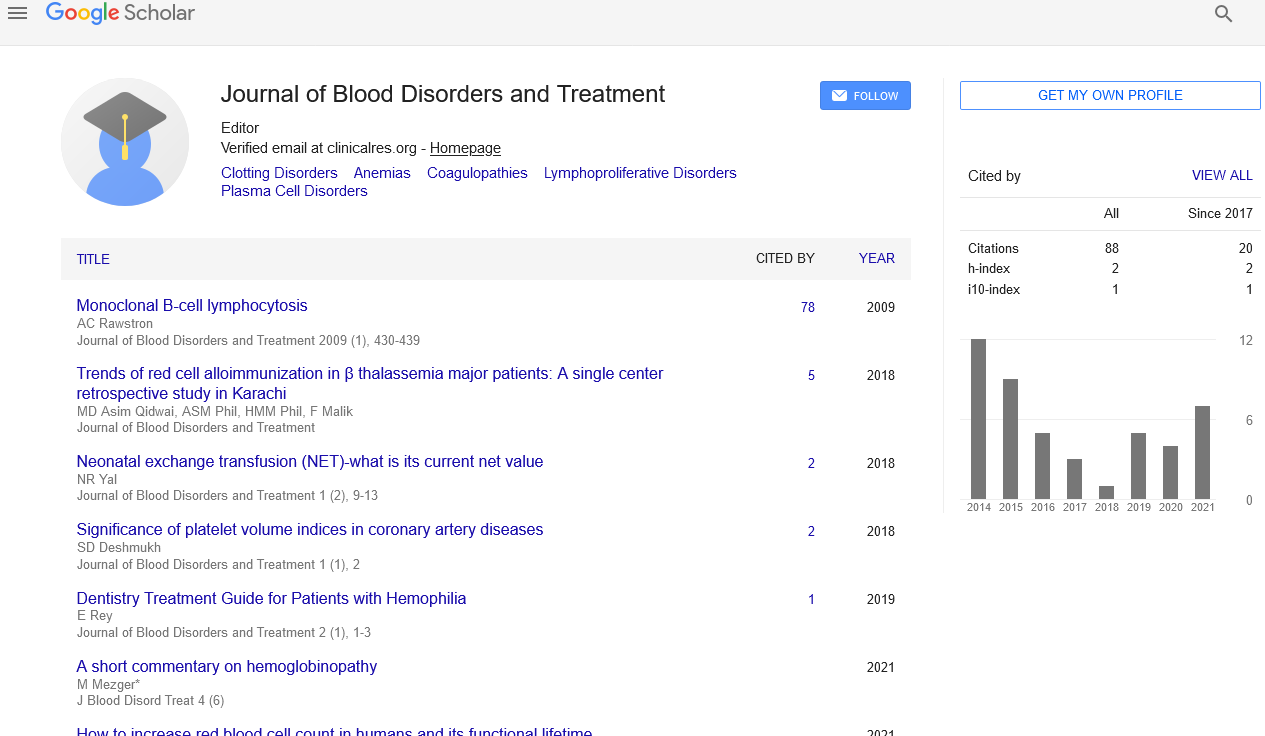
Sign up for email alert when new content gets added: Sign up
Real world study of anlotinib in advanced lung cancer
Joint Event on 11th WORLD HEMATOLOGY AND ONCOLOGY CONGRESS & 47th WORLD CONGRESS ON NURSING CARE
July 24-25, 2019 | Rome, Italy
Shujie Song, Ping Sui, Dengjun Sun
Yantai Yuhuangding Hospital of Qingdao University, China
ScientificTracks Abstracts: J Blood Disord Treat
Abstract :
Background and Purpose: Anlotinib is an oral receptor tyrosine kinase (RTK) inhibitor and targets multiple RTKs including VEGFR, EGFR, PDGFR and FGFR. Anlotinib was approved in China for the treatment of patients with lung cancer, squamous cell carcinoma of esophagus and soft tissue sarcoma. This study evaluated clinical outcomes and safety of anlotinib in real world practice.
Method: Medical records of 15 patients from our hospital with advanced lung cancer who received anlotinib between July 2018 and February 2019 were retrospectively reviewed. Anlotinib was administered orally at a dose of 12 mg daily on a 2 weeks on/1 week off schedule (21-day cycle) until disease progression or unacceptable toxicity.
Results: Twelve patients were male and the age at diagnosis ranged from 49 to 79. Nine patients were adenocarcinoma, 3 were squamous carcinoma and 3 were small cell lung cancer. Three patients were previously treated with tyrosine kinase inhibitor and 4 with anti-angiogenesis therapy. Two patients received anlotinib as the first line setting, 6 as the second line setting, 3 as the third line setting, 3 as the fourth line setting and 1 as the fifth setting. After 2 cycles of treatment, 5, 3 and 7 patients had achieved partial response, stable disease, and progressive disease, respectively. The objective response rate was 33.3%. The disease control rate was 53.3%. After 4 cycles of treatment, 3, 2 and 10 patients had achieved partial response, stable disease, and progressive disease, respectively. The objective response rate was 20%. The disease control rate was 33.3%. After 6 cycles of treatment, 3 and 12 patients had achieved partial response and progressive disease, respectively. The objective response rate was 20%. The disease control rate was 20.0%. No severe toxicity was observed in all patients.
Conclusion: Real world anlotinib outcomes mirror clinical results in advanced lung cancer.
Biography :
Shujie Song is a practicing medical oncologist at the Affiliated Yantai Yuhuangding Hospital of Qingdao University, China. He is experienced in diagnosing and treating cancers. He is also a young medical scientist. He has worked as a postdoc fellow for three and half years at the Lineberger Cancer Center at the University of North Carolina at Chapel Hill, USA. His research focuses on lung cancer and novel therapeutics. He is also interested in studying the role of aberrant chromatin remodeling in cancer development. He is currently the principal investigator for a grant dissecting the role of NRF2 activation in the development of lung cancer.
E-mail: shujies@hotmail.com




